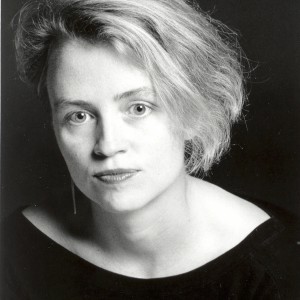
Cecilie Ore (1954) started out studying piano at the Norwegian Academy of Music and in Paris (1974-81), before she turned to composition studies at the Institute of Sonology in Utrecht and with Ton de Leeuw at the Sweelinck Conservatory in Amsterdam (1981-86). The tetralogies Codex Temporis and Tempora Mutantur and the orchestral piece Nunc et Nunc are among her most important instrumental works from the 80's and 90's. Since year 2000 she has worked on text-based projects with an increasingly…
Cecilie Ore (1954) started out studying piano at the Norwegian Academy of Music and in Paris (1974-81), before she turned to composition studies at the Institute of Sonology in Utrecht and with Ton de Leeuw at the Sweelinck Conservatory in Amsterdam (1981-86).
The tetralogies Codex Temporis and Tempora Mutantur and the orchestral piece Nunc et Nunc are among her most important instrumental works from the 80’s and 90’s. Since year 2000 she has worked on text-based projects with an increasingly critical glance on society. The stage work A. – a shadow opera, Schwirren for vocal ensemble, the chamber opera Dead Beat Escapement, Come to the Edge! for choir and the political stand-up romance Who do you think you are? all exemplify this. The themes range from death penalty to freedom of speech.
Cecilie Ore has won both national and international prizes for her work. She has been performed and commissioned by major orchestra, ensembles and choirs as the BBC Symphony Orchestra, Ensemble Mordern, BBC Singers, and the Norwegian National Opera & Ballet.
Her chamber opera: Adam & Eve – a Divine Comedy was premiered at the Bergen International Festival in 2015.
June 2016